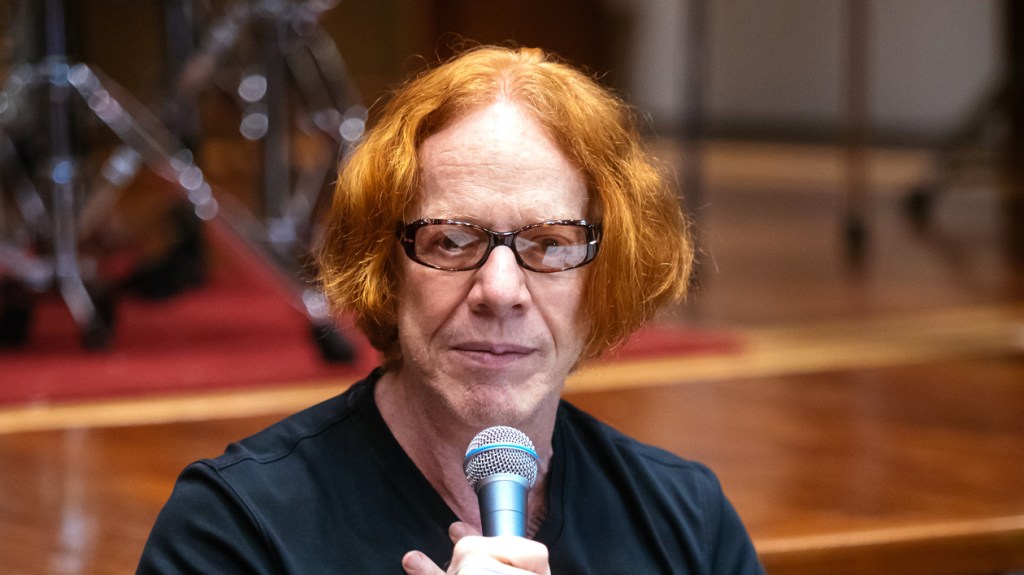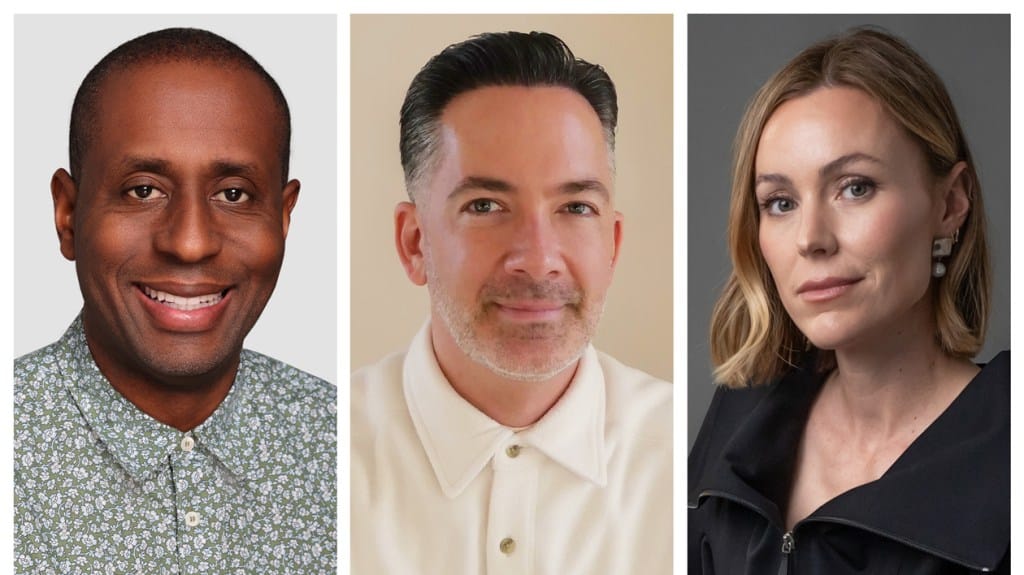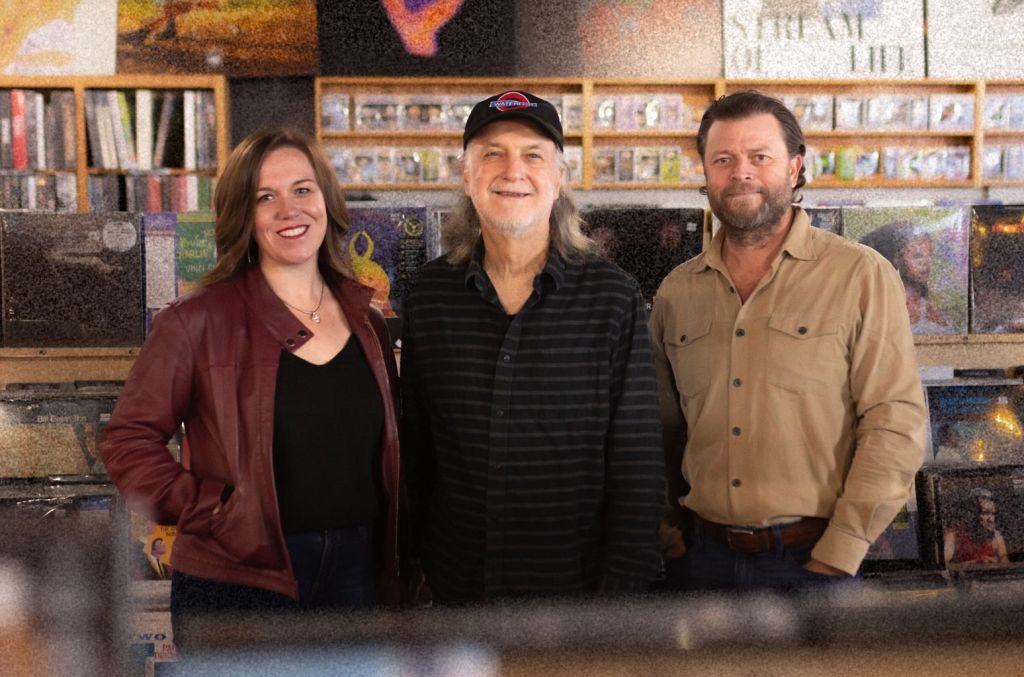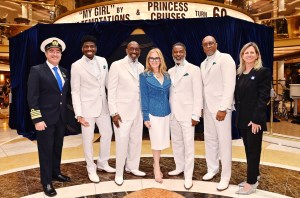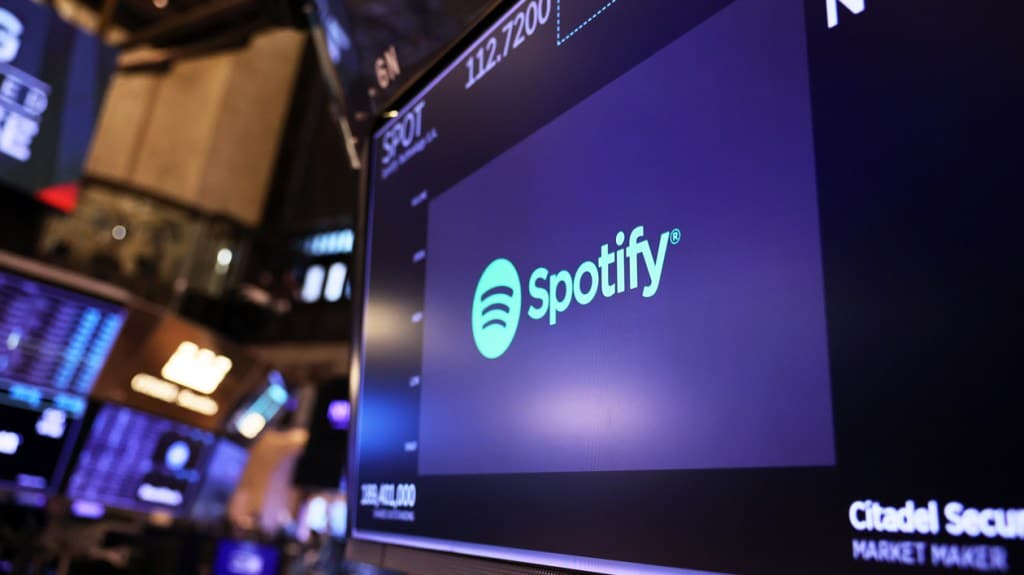Business
Page: 151
Lupe Fiasco is teaming up with the Massachusetts Institute of Technology to produce an FM radio station. There’s a catch, though: The project will be fully powered by artificial intelligence. The Chicago rapper-turned-professor made the announcement on Instagram last week with a lengthy caption, which read in part: “Imagine if there was a 24-hour fully […]
Film composer Danny Elfman has lost a bid to dismiss a defamation lawsuit over statements he made to the media defending himself from sexual harassment allegations.
The ruling came in a case filed last year by former friend and fellow composer Nomi Abadi, who claims that Elfman defamed her when he issued a strongly-worded statement to Rolling Stone denying her accusations that he had exposed himself and masturbated in front of her.
Elfman had argued that he couldn’t be sued because his comments were made in the course of litigation — a form of legal “privilege” designed to ensure that the adversarial American court system can function properly without fear of defamation lawsuits.
But in a decision issued Dec. 24, Judge Gail Killefer denied Elfman’s motion and allowed Abadi’s case to advance. In her ruling, the judge said Elfman’s comments to Rolling Stone had been more akin to a “press release” than a protected legal motion.
“To allow defendant Elfman to make statements and permit their publication while hiding behind the litigation privilege would decimate the purpose of the privilege,” the judge wrote.
In a statement to Billboard on Monday, Elfman’s attorney Camille Vasquez vowed to appeal the order: “We respectfully disagree with the court’s ruling and are optimistic that the Court of Appeal will agree with us that this case ought to be dismissed.”
An attorney for Abadi did not immediately return a request for comment.
Abadi’s allegations against Elfman — a prolific film composer best known for the famous intro to The Simpsons — were first publicized in a 2023 article from Rolling Stone. The story reported that Elfman had entered into a previously unreported $830,000 settlement in 2018 to resolve her accusations and that Abadi had recently sued him for failing to make payments under that deal.
In the article, Elfman responded with an extensive statement. Calling the allegations “vicious and wholly false,” he described Abadi as having a “childhood crush” on him and intending to “break up my marriage and replace my wife.” Elfman said that when he attempted to distance himself from her, “she made it clear that I would pay for having rejected her.”
Last summer, Abadi added defamation to her list of accusations against Elfman. In a lawsuit filed in Los Angeles court, she claimed that his media statement had falsely tarred her as an “extortionist” and as a “scorned woman seeking revenge and money,” leaving her career as a composer “in tatters.”
“In publicly branding Nomi as a liar, and a failed temptress who lied about him for reasons of revenge and greed, Elfman and his representatives defamed Nomi,” her lawyers wrote at the time.
In moving to dismiss that case, Elfman’s lawyers cited California’s anti-SLAPP statute — a law that aims to make it easier for judges to quickly dismiss cases that threaten protected speech. They argued that the response statement came in a letter threatening to sue Rolling Stone if it published Abadi’s allegations, meaning it was shielded under the litigation privilege rule.
But in her order last month, Judge Killefersaid said Elfman’s letter had been “more than just an attempt to dissuade Rolling Stone from republishing allegations of sexual misconduct.”
“It was an effort to litigate the issue before the court of public opinion, permitting Elfman to publicly deny the veracity of plaintiff’s claims while preemptively hiding behind the litigation privilege to prevent any defamation claim,” the judge wrote.
Judge Killefersaid also rejected other defense arguments from Elfman’s legal team, including their claim that his statement to Rolling Stone had merely been a statement of “opinion” that was not capable of being proven false. To the contrary, the judge ruled that his denial statement was an “assertion of fact” that could potentially put him on the hook for defamation liability.
With the anti-SLAPP motion denied, Abadi’s case against Elfman will now proceed into normal litigation, which could take years to resolve if the case is not settled.

It’s the end of an era in Canada as Justin Trudeau announces he will step down as Prime Minister.
The Liberal Party leader has held the country’s top political office since 2015. He will stay on while the Liberals hold a leadership race, with the winner becoming the next Prime Minister until an election is called.
Justin Trudeau faced calls from inside his party to step down, with his popularity plummeting amidst a year where incumbent leaders have lost elections globally.
“This country deserves a real choice in the next election, and it has become clear to me that if I’m having to fight internal battles, I cannot be the best option in that election,” Trudeau said.
The resignation announcement comes as a major piece of arts legislation, the Online Streaming Act, is being implemented. Trudeau’s government oversaw the passing of the Streaming Act, introduced as Bill C-11, which served as the first major update of Canada’s Broadcasting Act and sought to modernize Canadian arts policy for the digital age.
Trending on Billboard
A federal election is expected soon, with Conservative Party leader — and recent Jordan Peterson podcast guest — Pierre Poilievre ahead in the polls. Poilievre came out last fall against the Streaming Act’s requirements that major foreign streamers contribute 5% of Canadian revenues to support Canadian content, likening it to a tax.
“Spotify prices are going up thanks to Trudeau,” he posted, alongside a graphic of Trudeau DJing. The regulation does not explicitly mandate streaming services to raise their prices.
It’s unclear what a change in government could mean for implementing legislation like the Online Streaming Act, though Poilievre has promised a generally cuts-heavy approach to public funding.
Last year, Trudeau also announced a $32 million increase in funding to the Canada Music Fund, which supports granting bodies FACTOR and Musicaction, and $31 million in funding for festivals and arts performances. The announcements were welcomed by several industry associations.
In recent years, Trudeau has made headlines for appearing at a handful of concerts in Toronto. After tweeting at Taylor Swift to come to Canada when she first announced the Eras Tour, he later attended with his family at Rogers Centre. When Punjabi star Diljit Dosanjh played the same venue, Trudeau came backstage to congratulate him, recognizing the unique Canadian attendance record. Last year, Canadian songwriter and poet Mustafa penned an open letter to the Prime Minister to protect and speak for the people of Palestine.
While the future of Canadian politics is up in the air, writer John Semley joked on BlueSky that this may have been Trudeau’s savviest political decision: resigning before Kendrick Lamar plays “Not Like Us” at the Superbowl.
This story was originally published by Billboard Canada.
Wasserman Music has announced the hiring of Kevin Shivers, James Rubin and Cristina Baxter — all from rival agency WME. Shivers and Rubin will join Wasserman’s executive leadership team, marking the global talent firm’s largest expansion since opening its doors in 2021.
Shivers and Rubin will both hold the title of executive vice president and managing executive, while Baxter is joining as senior vp. The appointments are effective immediately, the company said.
Over a 16-year run, Los Angeles-based Shivers advanced from WME’s mail room to become a partner in the agency’s music department, where he helped lead the hip-hop division and managed global A&R. He has represented artists like Tyler, The Creator, Snoop Dogg, Kid Cudi, Solange and Lil Baby, and is known for his mentorship of rising industry leaders and for advocating diverse representation. He is also the most recent recipient of Billboard‘s peer-voted R&B/Hip-Hop Power Players Choice Award, honoring the executive who has made the greatest impact across hip-hop and R&B over the past year.
Trending on Billboard
New York City-based Rubin is coming off nine years at WME, where as senior partner and co-head of the hip-hop/R&B team he represented artists including Wiz Khalifa and Travis Scott. Prior to joining WME, he headed up the International Division for Urban Touring and specialized in international markets at The Agency Group in London. Over the years, Billboard has recognized him in its list of impressive young execs, its annual tally of top R&B/hip-hop power players and, most recently, as one of the key leaders in the global recorded-music business.
Baxter, based in Los Angeles, joined WME in 2011 as an assistant and rose to partner and co-director of the pop and rock teams. Over the years, she has represented artists like André 3000, Carly Rae Jepsen, Sofi Tukker, Kygo and others. Like Rubin, she has been recognized with awards such as Billboard‘s 40 Under 40.
All three execs expressed excitement about joining Wasserman Music — “an agency for the future,” said Shivers — citing its innovative and artist-focused approach. They all aim to contribute to the agency’s mission of empowering artists and driving growth opportunities in the industry.
“Kevin, James, and Cristina are highly respected leaders in the industry who exemplify the values on which our company is built,” said Casey Wasserman, chairman and CEO of Wasserman. “We’re thrilled to have them join Team Wass during this exciting period of growth for our global music division.”
Wasserman Music president Lee Anderson added, “It’s gratifying to now refer to some of our toughest competition as our newest teammates and partners.”
Austin’s Waterloo Records, a cornerstone of the city’s music scene since 1982, is entering a new chapter.
After over four decades as the heartbeat of Austin’s music culture, owner John Kunz has announced that he is passing the torch to new owners—Caren Kelleher, Founder & CEO of Gold Rush Vinyl, and Austin entrepreneur Trey Watson.
Along with the change in ownership, Waterloo Records will also be relocating to a new, larger space at 1105 North Lamar this spring.
Waterloo Records has long been a cultural hub for Austinites and visitors alike, hosting in-store performances by artists like Norah Jones, Willie Nelson, and Nirvana and playing a pivotal role in co-founding Record Store Day in 2008.
Trending on Billboard
“My decades-long hope, dream and endeavor, has been for Waterloo Records & Video to live on forever, continuing to promote Austin’s vibrant music culture and community,” said John Kunz.
“Now with this transition, all of my boxes are checked: a new larger home, just five blocks away; Caren and Trey buy in as my new, talented, local music industry partners; all of my team are retained and they will gain the opportunity for store ownership; all of the Waterloo Records hallmarks and traditions continue on, including innovation; and now as a minority partner and not sole proprietor, I get to work less, and play more. So thank you Austin!”
“John, Trey and I recognized this as a once-in-a-lifetime opportunity to guard and grow an iconic music business and to get to do so in a town we all love,” said Caren Kelleher. “John was one of the first people to welcome me to Austin when I moved here to start Gold Rush Vinyl and his friendship has been so important over the years. It means so much to me that he and his wife Kathy Marcus trust me to be part of the next chapter of Waterloo.”
Trey Watson, a longtime Austin entrepreneur with a background in music and media, said the store’s legacy is part of the city’s fabric.
“Since 1982, Waterloo Records has been a large part of the fabric of that soul as a small business and as a place where people gather as a community to celebrate music. I’m honored and grateful that John Kunz has entrusted our team with guiding Waterloo into the future. We have great things planned for all to experience.”
The move to 1105 North Lamar marks a significant upgrade for Waterloo, expanding its current 6,400 sq. ft. space by 50% to allow for larger events, enhanced in-store performances, and improved parking options.
The location, previously occupied by Louis Shanks Furniture and later a Whole Foods regional office, provides modern amenities while maintaining the store’s proximity to downtown Austin and nearby music venues. This expansion underscores the commitment to keeping Waterloo a key destination for music fans and artists alike.
The transition comes at a pivotal moment for Austin, a city known for its deep musical roots but also experiencing rapid growth as a global tech hub. “Austin has a soul about it that attracted me to move here over 25 years ago and continues to draw people here today,” said Watson.
Two legends are celebrating diamond anniversaries together this year: Princess Cruises (aka “The Love Boat”) and The Temptations. And fans are welcome to join in the festivities when Princess sets sail on its 14-day 60th Anniversary Mexican Riviera Voyage on Dec. 6, 2025. Also on board for a special performance will be The Temptations, who […]
Nicki Minaj has been sued for assault by a man who claims the rapper physically attacked him following a concert in Detroit last April, according to documents filed in Los Angeles Superior Court on Friday (Jan. 3).
In the complaint, the plaintiff, Brandon Garrett, claims that while working as a day-to-day manager for Minaj’s 2024 Pink Friday 2 tour, the rapper (real name Onika Maraj) hit him multiple times after flying into a rage backstage at Little Caesars Arena in Detroit.
According to the lawsuit, the alleged assault occurred on April 21 after Garrett was summoned to Minaj’s dressing room backstage at the arena, where he says he was confronted by Minaj and her former manager Deb Antney about sending another tour employee, identified as hospitality manager Luke Montgomery, to pick up prescriptions for Minaj in his place.
“Ms. Antney asked why Mr. Montgomery was picking up prescriptions on behalf of Defendant Maraj,” the complaint reads, referring to Minaj by her birth name. “Plaintiff responded that he had Mr. Montgomery pick up a prescription in the past because Defendant Maraj wanted it immediately, but Plaintiff was occupied at the venue with Defendant Maraj in the quick change room during a performance because one of Plaintiff’s job duties was assisting Defendant Maraj with dressing during performances.”
Garrett claims that Minaj then became “visibly upset” and “angrily screamed” at him, “Are you f—ing crazy having him pick up my prescription? You have lost your f—ing mind and if my husband was here, he would knock out your f—king teeth. You’re a dead man walking. You just f—ed up your whole life and you will never be anyone, I’ll make sure of it.” Minaj then allegedly “started yelling” at Montgomery, asking what day he picked up the prescriptions and “what exact prescriptions they were.” When Montgomery said he did not remember, Minaj allegedly “screamed” at him “to look through his phone until he finds it.”
The complaint states that when neither Montgomery nor Garrett could find the information Minaj had requested, she “asked to see Mr. Montgomery’s cell phone to read the last text message between Plaintiff and Mr. Montgomery.” After Montgomery allegedly offered up his cell phone to Minaj to read the messages, Garrett says she approached him and “got very close to his face” while continuing to yell at him.
“At this point, Defendant Maraj open-handedly struck Plaintiff on the right side of his face, causing his head to swing backwards as his hat flew off his head,” the complaint reads. Garrett alleges that at this point, several members of Minaj’s security team “swarmed in close” to them before Minaj allegedly “struck Plaintiff on his right wrist, knocking the documents in Plaintiff’s hand onto the floor.”
Garrett claims that Minaj then ordered him out of the room. After complying with her demand, he says he “ran to the nearest restroom and locked himself inside for hours,” during which he says he called his fiance to tell him what had happened. “At this point, Plaintiff’s wrist was throbbing and his face was sore, but he stayed in the restroom because he was terrified and feared for his safety,” the complaint continues. In the “early morning hours” of April 22, Garrett says he then received a text message “from a bus mate on the tour” informing him that Antney said Garrett “would not be riding the bus from Detroit to Chicago,” leaving him stranded.
After arriving back in Chicago on a flight, Garrett says he contacted the Chicago Police Department for a police escort back to his hotel “because he feared for his safety and did not know if his belongings had been removed or tampered with.” He says he filed a police report with the Chicago PD after arriving back at his room, where he allegedly remained “for the next couple days…because he was fearful and traumatized” over the incident. He says he then flew back to Detroit to file a formal police report there.
Garrett is suing for intentional infliction of emotional distress, assault and battery and is asking for punitive and exemplary damages and general damages, among other relief.
A representative for Minaj did not immediately respond to Billboard‘s request for comment. Antney also did not immediately respond to a request for comment.
One of the individuals charged in connection with Liam Payne‘s death earlier this week has now been arrested by Argentinian authorities. Braian Paiz, one of two men accused of supplying drugs to Payne prior to his death, was arrested by police on Friday (Jan. 3), according to a CBS News report. The former One Direction […]
When it came to music stocks in 2024, there was Spotify, and then there was everything else.
The Swedish music streaming company not only had the top-performing music stock of the year, but its share price’s gain nearly tripled the next best company. Despite ending the year on a four-week losing streak during a downturn that eroded an otherwise spectacular year for many markets and indexes, Spotify’s share price jumped 138.1% to $447.38 in 2024.
Layoffs and price increases in 2023 did wonders for Spotify’s financial statements. Headcount was reduced by about 25%, eliminating the bloat gained during a pandemic-era hiring spree that mirrored a boom in subscriber gains. At the same time, Spotify broke with its long-standing tradition of leaving prices untouched by hiking fees in the U.S. and many other major markets — followed by a second price hike in 2024 in the U.S. and U.K. After more than a decade of adding features and expanding editorial programming, the streaming giant believed it could finally raise prices without its customers fleeing to competitors (many of whom raised their prices before Spotify). It was right.
The one-two punch quickly produced results. Perpetually unable to turn a profit, Spotify went from an average quarterly operating loss of 112 million euros ($121 million) in 2023 to an average quarterly operating profit of 296 million euros ($322 million) in the first three quarters of 2024. Gross margin (revenue less cost of sales) shot up, too, from 24.1% in the second quarter of 2023 (the last period before the first price increase) to 31.1% in the third quarter of 2024. Subscribers didn’t just stick around, they grew in numbers, from 220 million before the first price increases to 252 million on Sept. 30, 2024.
Trending on Billboard
Investors have rewarded Spotify for becoming a more efficient business without sacrificing the product quality necessary in a competitive market. An investment in Spotify on Nov. 4, 2022, when the share price reached an all-time low of $69.29, would have returned 446% by the end of 2024. For a brief time in early December, Spotify’s market capitalization surpassed $100 billion.
The 20-company Billboard Global Music Index gained 38.5% in 2024, easily besting the tech-heavy Nasdaq Composite (up 28.6%), the S&P 500 (up 23.3%), the Shanghai Composite Index (up 12.7%) and the FTSE 100 (up 5.7%). Because the index is unweighted, Spotify, the index’s largest company by market value, was responsible for much of that improvement. Without Spotify’s gain, the index would have risen just 2.5%.
Streaming and live music accounted for eight of the 10 music stocks that posted gains in 2024, reflecting these companies’ ability to capture the financial benefits of consumers’ willingness to spend more on music. Despite Spotify’s enormous improvement, live music was the best segment with an average gain of 24.8%. Live Nation was the index’s second-best performer with a 38.3% gain, besting German promoter CTS Eventim (up 30.4%), Sphere Entertainment Co. (up 18.6%) and MSG Entertainment (up 11.8%). These companies have benefitted from music fans’ ability to withstand consistently higher prices. Last year, the average ticket price for the top 100 tours was $132.30, up from $119.64 in 2023, according to Billboard Boxscore.
Music streaming stocks posted an average gain of 23.0%. Chinese music streaming companies Cloud Music and Tencent Music Entertainment gained 27.2% and 26.0%, respectively, and U.S.-based LiveOne gained 5.0%. Abu Dhabi-based Anghami and French streamer Deezer were exceptions to music streaming’s banner year. Anghami fell 21.2% while Deezer slipped 37.1%.
Record labels and music publishers — here classified as multi-sector companies — continued to expand their revenue in 2024 but didn’t have the momentum of live and streaming companies. Universal Music Group (UMG) fell 4.2% even though its sales through the third quarter reached 8.4 billion euros ($9.1 billion), up 6.3% from the prior-year period. Warner Music Group (WMG) dropped 13.4% after its revenue for the fiscal year ended Sept. 30 rose 6% to $6.4 billion. Both companies’ recorded music streaming revenue grew nicely, too — 7.3% for UMG and 6.9% for WMG — but investors rewarded streaming companies, not record labels, for subscriber and pricing gains.
K-pop companies were down across the board in 2024. HYBE, SM Entertainment, YG Entertainment and JYP Entertainment lost an average of 19.0% last year after gaining an average of 30.0% the prior year. Some of the decrease can likely be attributed to sharp profit declines and uneven revenue growth in recent quarters, though it can also be attributed to the rough year for South Korean stocks in general. The KOSPI composite index dropped 9.6% and was already in poor shape when South Korean Prime Minister Yoon Suk Yeol declared martial law on Dec. 3.
French music company Believe is an outlier in the multi-sector category, though most of its 37.1% gain can be attributed to the deal in June that took the company private at a 21% premium. Another notable outlier is Reservoir Media, which gained 26.9% without the benefit of a transaction to boost the share price. Instead, Reservoir shares were helped by activist investor Irenic Capital Management LP, which took an 8.1% stake in September and called on the “undervalued” company to “undertake a full review of all alternatives” to maximize shareholder value. From the date of Irenic Capital’s regulatory filing to the end of the year, Reservoir Media shares rose 17.8% while other multi-sector stocks either barely improved or lost value.
Radio companies have not been darlings of Wall Street in recent years, and 2024 was no exception. For all the optimism espoused by broadcast and satellite radio companies, they continue to struggle in an increasingly streaming-based world. The worst-performing music stock of the year was Cumulus Media, which fell 87.4% to $0.67. Through September, Cumulus’ revenue was down 2.4% and its net loss more than doubled. SiriusXM fell 58.3%, with much of that decline coming after the company announced plans to focus on in-car satellite listening after its streaming app, launched in late 2023, failed to catch on with consumers. iHeartMedia dropped 25.8% but ended the year on a high note after exchanging much of its long-term debt to extend maturity dates.
A Los Angeles federal judge says that a woman accusing Diplo of sharing “revenge porn” must reveal her identity if she wants to proceed with her civil lawsuit against the star.
The case — which claims the DJ (Thomas Wesley Pentz) filmed sexual encounters and shared them on Snapchat — was filed by an unnamed “Jane Doe.” But in a ruling Tuesday (Dec. 31), Judge Mónica Ramírez Almadani said the accuser had failed to legally show that she needs to remain anonymous.
The use of Doe pseudonyms has become common in sexual abuse complaints, and attorneys for Diplo’s accuser had argued that she would face retaliation if her name is revealed. But Judge Almadani said such treatment is reserved only for clear-cut, high-risk situations — and that the case against Diplo doesn’t qualify under that standard.
“The court appreciates that plaintiff’s allegations in her complaint are sensitive and of a highly personal nature, and that she may face some public scrutiny,” the judge wrote. “However, absent a demonstrated need for anonymity, there is a prevailing public interest in open judicial proceedings.”
The ruling is a win for Diplo, who has strongly denied the lawsuit’s allegations and argued that the plaintiff must reveal her name. In court filings, his lawyers had argued that he “cannot adequately confront his accuser without knowing her identity.”
In a complaint filed in June, Diplo’s accuser alleged she’d had a consensual sexual relationship with the DJ from 2016 to 2023, and that she occasionally “gave defendant Diplo permission to record them having sex.” But she said she later learned that he had sometimes secretly recorded them and then shared footage on the internet “without plaintiff’s knowledge or consent.”
“Plaintiff brings this action to recover for the emotional and physical injuries she endured because of Diplo’s actions and to make sure no one else is forced to suffer the privacy invasions and physical and mental trauma she felt and continues to feel to this day,” Doe’s attorneys wrote.
The lawsuit accused Diplo of violating the federal Violence Against Women Act, which was amended in 2022 to ban the sharing of “intimate” images without the consent of those depicted in them. The case also cited an earlier revenge porn law enacted by the state of California.
In seeking to use the “Jane Doe” pseudonym, attorneys for Diplo’s accuser argued that she would face “personal embarrassment and social stigmatization” if her name were revealed. They warned that the DJ has a “large following,” and that when another woman spoke out about alleged revenge porn, she had faced “ridicule and threats to bodily harm.”
But in Tuesday’s decision, Judge Almadani said Doe had failed to supply hard evidence to support those claims — and that barring such proof, people using the American legal system must use their real names. The judge cited an earlier ruling that “the people have a right to know who is using their courts.”
“Those using the courts must be prepared to accept the public scrutiny that is an inherent part of public trials,” the judge wrote, quoting from another old ruling. “Plaintiff has not sufficiently demonstrated that this case warrants an exception.”
Though Almadani wasn’t swayed by fears of potential foul play, she pointedly warned both sides about avoiding any such behavior as the case moves forward — saying that she would “not tolerate any disrespect toward either party.”
“This case, like all other cases, shall be handled with professionalism and civility by all sides,” the judge wrote. “Any actual threats of retaliation or harassment shall be brought to the Court’s attention immediately.”
Neither side’s attorneys immediately returned requests for comment on Friday (Jan. 3).

 State Champ Radio
State Champ Radio 
